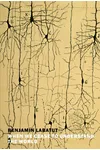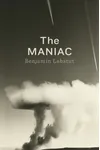Picture a Chilean storyteller who weaves science, madness, and mystery into unforgettable tales—meet Benjamín Labatut! Born in Rotterdam in 1980, this literary alchemist has captivated readers worldwide with his genre-bending blend of fact and fiction. His breakout novel, When We Cease to Understand the World, landed on the New York Times’ 10 Best Books of 2021 and even caught Barack Obama’s eye for his summer reading list. Labatut’s work dances on the edge of reality, exploring the minds of brilliant scientists and the ethical shadows of their discoveries.
With a style that feels like a fever dream, Labatut invites readers to question the nature of truth and the cost of human genius. Whether you’re a science nerd or a fiction lover, his stories promise to leave you both thrilled and unsettled.
The Making of Benjamín Labatut
Born in the Netherlands, Labatut’s childhood was a global adventure, hopping from The Hague to Buenos Aires, Lima, and finally settling in Santiago, Chile, at 14. This eclectic upbringing shaped his worldview, infusing his writing with a cosmopolitan curiosity. Mentored by Chilean poet Samir Nazal, Labatut honed his craft early on, winning the 2009 Premio Caza de Letras for his debut short story collection, La Antártica empieza aquí. His nomadic roots and literary influences set the stage for a career that defies convention.
Benjamín Labatut’s Unforgettable Stories
Labatut’s books are not your typical novels—they’re a heady mix of history, science, and imagination. His debut, La Antártica empieza aquí (2009), a collection of short stories, earned critical acclaim in Mexico and Chile for its bold narrative experiments. His second work, Después de la luz (2016), delved into the void through philosophical and scientific notes, reflecting a personal crisis that deepened his introspective style.
The game-changer came with When We Cease to Understand the World (2020), a genre-defying masterpiece that blends biography, essay, and fiction to explore the lives of scientists like Werner Heisenberg and Fritz Haber. Nominated for the 2021 International Booker Prize, it’s a haunting meditation on the ecstasy and agony of discovery. His latest, The MANIAC (2023), focuses on polymath John von Neumann, weaving a narrative from the Manhattan Project to AI’s dawn, with a gripping account of Lee Sedol’s Go match against AlphaGo. Labatut’s style—lyrical, unsettling, and razor-sharp—makes complex ideas feel like page-turning thrillers.
What sets Labatut apart is his ability to blur fact and fiction, creating a dreamlike narrative that feels both true and surreal. His works challenge readers to wrestle with big questions: What happens when science outpaces understanding? Where does genius end and madness begin?
Why Benjamín Labatut Matters
Labatut’s impact lies in his fearless exploration of humanity’s greatest triumphs and darkest fears. His books resonate with readers who crave stories that provoke as much as they entertain. By illuminating the moral complexities of scientific progress, he’s carved a unique niche in contemporary literature, earning fans like Stephen Fry, Björk, and Barack Obama. His work has been translated into over 30 languages, cementing his global influence.
In an era of rapid technological change, Labatut’s stories are a timely reminder of the human cost of innovation. His cult following continues to grow, as readers discover his ability to make the esoteric feel deeply personal.
- Born: 1980, Rotterdam, Netherlands
- Key Works: La Antártica empieza aquí, Después de la luz, When We Cease to Understand the World, The MANIAC
- Awards: Premio Caza de Letras 2009, Santiago Municipal Literature Award 2013, International Booker Prize nominee 2021
Ready to dive into a world where science meets storytelling? Snag When We Cease to Understand the World and let Benjamín Labatut’s haunting prose sweep you away!

